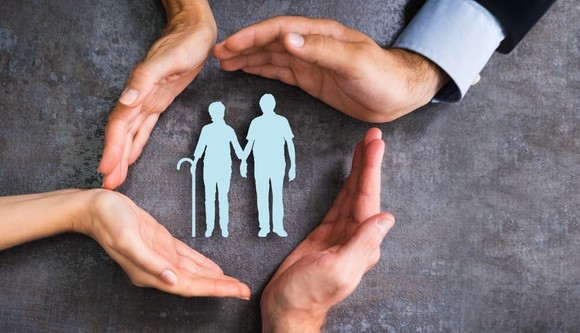Home safety tips for seniors
In order to help keep senior citizens safe at home and on the go, learn these senior safety tips and facts:
-
- Focus on balance. Exercise regularly to maintain strength, and rise slowly after eating, sitting or lying down to help avoid dizziness and loss of balance.
- Medicate safely. Improper use and handling of medication can create serious safety concerns. Check medication expiration dates on all prescription and over-the-counter medications – and follow all directions.
- Store medications safely. Medicine is best kept in its original container, but if you must transfer medication to a new container, clearly label it with the medication name, dose, and expiration date.
- Have easy access to emergency numbers on all phones.
- Wear an alarm device. Consider wearing an alarm device in case you fall and cannot get up on your own.
- Get annual eye exams. Ensure your glasses or contacts prescription is up to date and that you do not have any conditions that limit your vision.
- Handle driving with respect and honesty. If you or your loved one has declining driving abilities, consider alternate forms of transportation. The decision, while difficult, can save lives.
Prevention safety for senior citizens
Prevent unnecessary falls and improve your safety by making yourself aware of environmental hazards. Take action to remove fall risks from your home by:
- Install secure handrails and bright lights with switches at the top and bottom of stairways.
- Repair loose or uneven steps. Check stairs for worn or loose carpeting and install anti-slip treads.
- Always wear shoes with traction and make sure throw rugs have non-skid backing.
- Install grab bars for the toilet, bathtub and/or shower, and use non-slip mats or decals on ceramic surfaces both inside and outside the tub.
- Install nightlights in areas you frequent at night. Also, consider keeping a flashlight near your bed.
- Store frequently-used items on lower shelves in the kitchen to limit the use of stools or step-ladders. If you must use a step stool, use one with a bar to hold onto.
How to keep elderly parents safe?
- Living areas – look for clutter and other trip hazards, especially slippery or frayed rugs.
- Staircases – check staircases for adequate lighting, that they are free from clutter, that handrails are properly installed and there are no loose stair treads.
- Bathrooms – look for any fall hazards.
Some simple things that you can do to help protect your loved one:
- Stay involved with your elder.
- Find sources of help and use them.
- Anticipate potential incapacitation and get legal affairs in order.
- Use safety devices and technology.
- Carefully select caregiver/nurse/house help.
- Always go out with them to ensure safety of your elder.
- Ensure they have enough cash to catch an auto or a taxi.
- Make sure they have enough of water with them when they go out.
- Keep a list of important telephone numbers, names of family members, in case they get lost or have a sudden memory lapse.
How to defend yourself when someone attacks you?
As a last resort, defend yourself by physically fighting back – Use your body “defenders” – your elbow, your heel, your fist, your voice, and your head. A wheelchair or a cane can also be used as a defender. To get away quickly, aim for a place on the attacker’s body that will hurt a lot.
Understanding Self-Defence Laws in India (Lawyer’s Perspective):
Under Indian law, individuals have the right to defend themselves when faced with imminent danger or threat. This right is recognized under various sections of the Indian Penal Code (IPC) and other relevant laws. Keeping this short, here are some points to keep in mind:
- Right to Private Defense: Sections 96 to 106 of the IPC establish the right to private defense, allowing individuals to protect themselves and others against certain offenses.
- Proportional Force: The force used in self-defence should be proportionate (very important) to the threat faced and must not exceed what is necessary to repel the attack.
To sum up, “The best defense is a good offense” …this is an adage that has been applied to many fields of endeavor, including games and military combat. It is also known as the strategic offensive principle of war. “Self-defense is not just a set of techniques; it is a state of mind that begins with the belief that you are worth defending” – Rorion Gracie.








